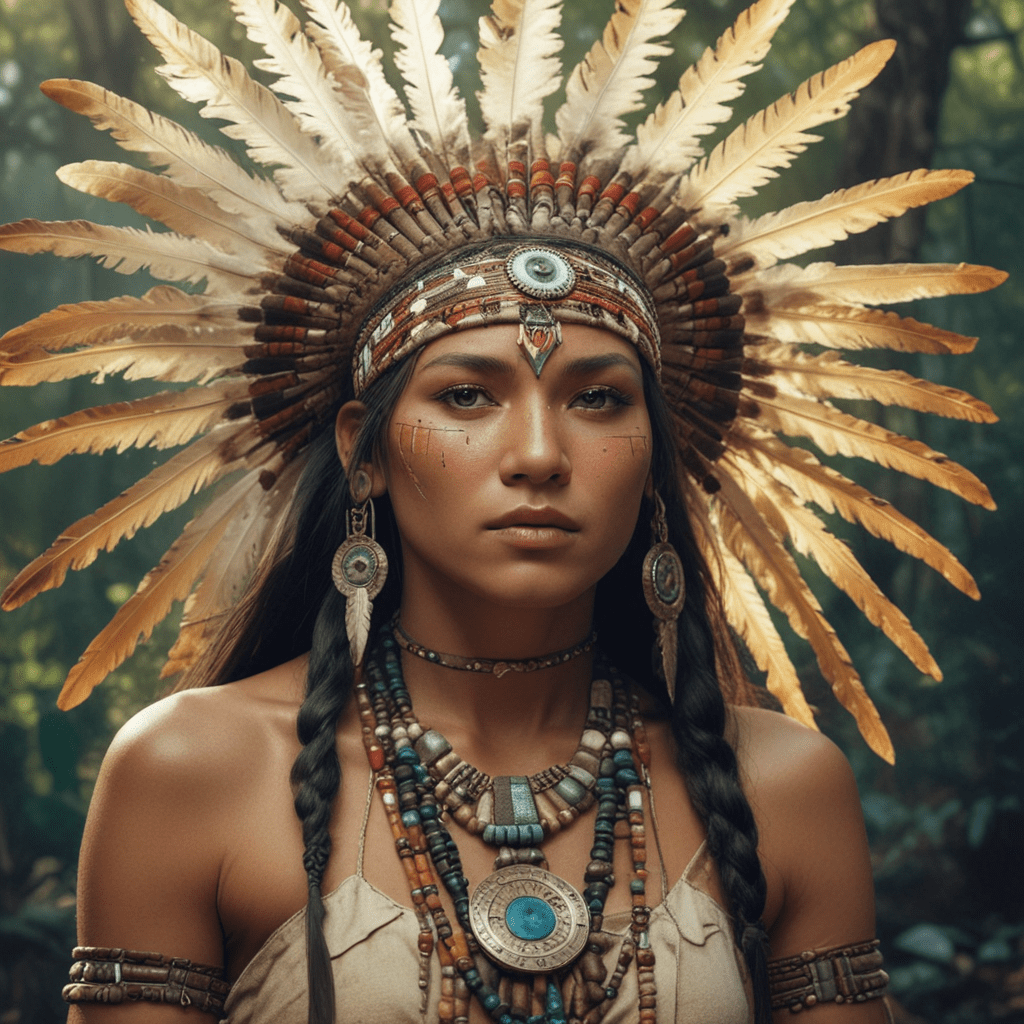Exploring the Creation Myths of South American Indigenous Peoples
I. Introduction
South American indigenous cultures possess a rich tapestry of creation myths that narrate the origins of the world, humanity, and the cosmos. These myths provide profound insights into the cultural beliefs, values, and spiritual practices of the people who have inhabited the continent for centuries. This article explores some of these captivating creation myths, showcasing the diverse and vibrant mythology of South America's indigenous communities.
II. The Importance of Creation Myths
Creation myths hold immense significance in indigenous cultures as they serve as foundational narratives that shape the worldview and identity of a people. They provide a framework for understanding the origin of the universe, the creation of humankind, and the relationship between humanity and the natural world. These myths offer a sense of belonging, connecting individuals to their ancestors, the land, and the cosmos. They also often contain moral lessons and ethical guidelines that guide the behavior and actions of members of the community.
III. The Incas: Creation from the Sun and Moon
In Inca mythology, the world was created by the Sun God, Inti, and the Moon Goddess, Mama Killa. Inti emerged from Lake Titicaca, ascended to the heavens, and created the sun, the stars, and the moon. Mama Killa followed him, giving birth to the earth and all living creatures. The Incas believed that Inti and Mama Killa were the parents of humanity and that the emperor was a direct descendant of the Sun God. This myth reflects the Inca's deep connection to the celestial bodies and their belief in divine ancestry.
VI. The Aymara: The Lake Titicaca Creation and the Origins of Civilization
The Aymara indigenous people of the Andes region believe that Lake Titicaca is the birthplace of the world. According to their mythology, the god Viracocha emerged from the lake and created the sun, moon, and stars. He then created the first humans from clay and placed them on the shores of the lake. The Aymara believe that Viracocha taught them how to cultivate crops, build houses, and live in harmony with nature. This myth highlights the central role of Lake Titicaca in Aymara culture and their deep connection to the land.
VII. The Tupinambá: The Myth of the Flood
The Tupinambá indigenous people of Brazil have a creation myth that revolves around a great flood. According to their beliefs, the world was originally inhabited by a race of giants who were cruel and disrespectful to the gods. The gods became angry and sent a giant flood to destroy the giants. Only a few humans survived the flood by climbing to the top of a mountain. After the flood, the gods created new humans from the remains of the giants, and these humans became the ancestors of the Tupinambá people. This myth emphasizes the importance of respecting the gods and living in harmony with nature.
VIII. The Guarani: The Seven Serpents
The Guarani indigenous people of Paraguay and Argentina have a creation myth that involves seven serpents. According to their beliefs, the first humans emerged from a gourd that was carried by seven serpents. The serpents represented the seven colors of the rainbow and the seven directions of the universe. The Guarani believe that these serpents are the protectors of humanity and that they guide the souls of the dead to the afterlife. This myth highlights the importance of the rainbow and the natural world in Guarani culture.
IX. The Witoto: The Celestial Jaguar
The Witoto indigenous people of Colombia have a creation myth that revolves around a celestial jaguar. According to their beliefs, the world was created by a jaguar who descended from the sky. The jaguar created the sun, moon, and stars, and he also created the first humans from clay. The Witoto believe that the jaguar is the father of all living creatures and that he continues to watch over them from the sky. This myth emphasizes the importance of the jaguar and the natural world in Witoto culture.
X. Conclusion
The creation myths of South American indigenous peoples offer a fascinating glimpse into the diverse cultures and beliefs of the continent's original inhabitants. These myths provide insights into the origins of the world, humanity, and the cosmos, and they also offer valuable lessons about the importance of respecting the natural world, living in harmony with others, and honoring the traditions of one's ancestors. By exploring these myths, we gain a deeper appreciation for the rich cultural heritage of South America and the profound connection between indigenous peoples and their environment.
FAQ
Q: What is the common theme in South American indigenous creation myths?
A: Many South American indigenous creation myths share the theme of a supreme being or beings who create the world and humanity from natural elements such as water, clay, or animals.
Q: Why are creation myths important to indigenous cultures?
A: Creation myths hold immense significance in indigenous cultures as they provide a framework for understanding the origin of the universe, the creation of humankind, and the relationship between humanity and the natural world. They also often contain moral lessons and ethical guidelines that guide the behavior and actions of members of the community.
Q: How do creation myths influence indigenous cultural practices?
A: Creation myths can influence indigenous cultural practices by shaping their worldview, beliefs, and rituals. They provide a foundation for understanding the origins of traditions, ceremonies, and the relationship between the community and the environment.



